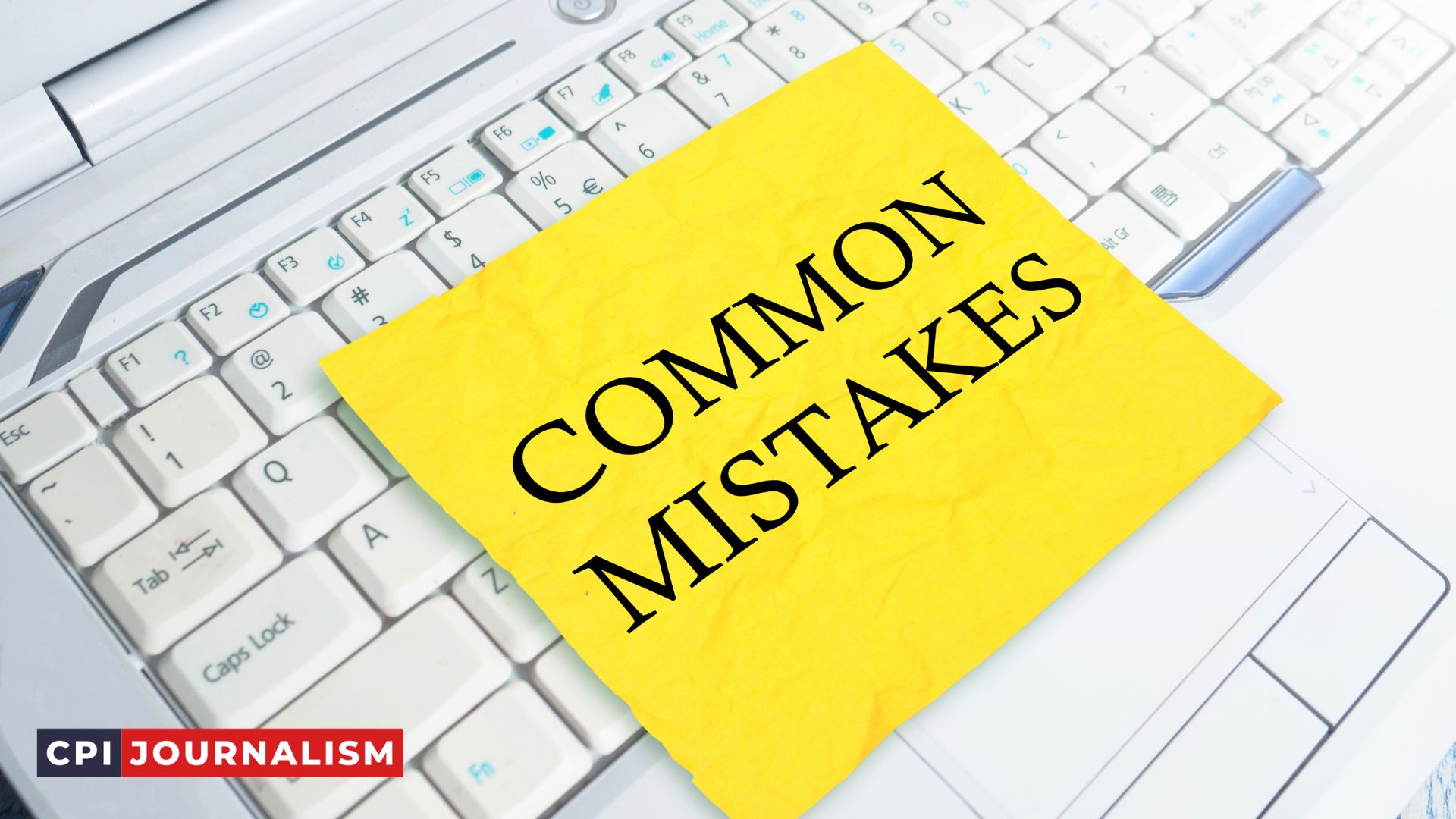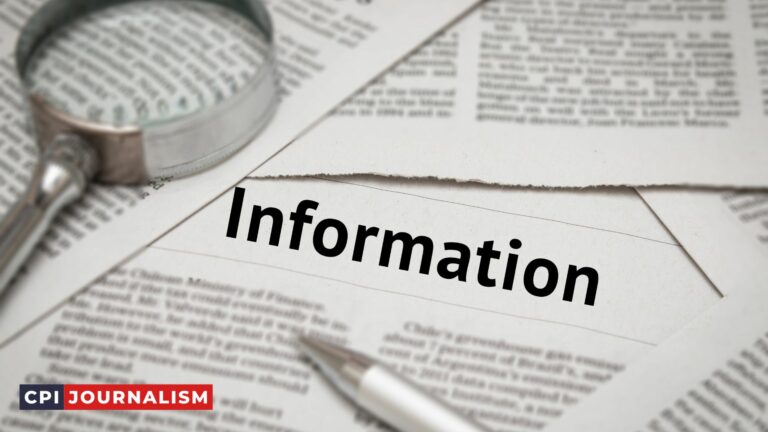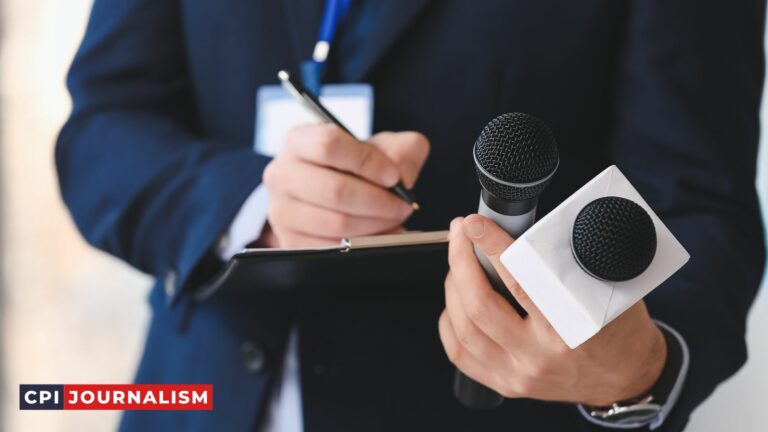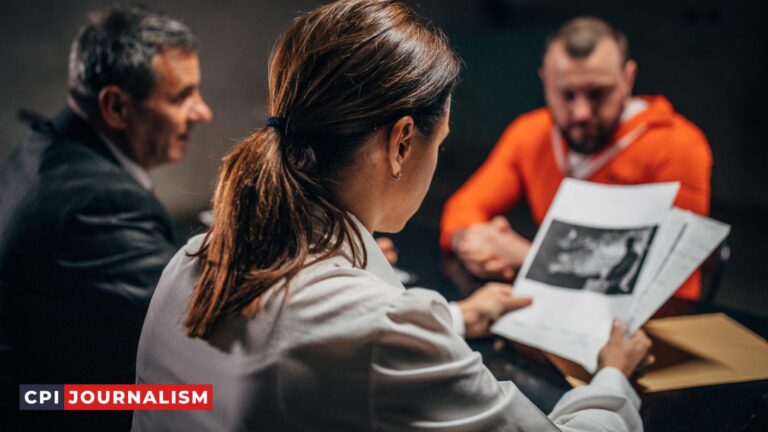What Are the Common Mistakes Made by Investigative Journalists and How Can They Be Avoided?
As an experienced investigative journalist, I understand the importance of getting it right. But, as with any profession, there are certain mistakes that can be made in the course of our work.
In this article, I will explore some of the most common mistakes made by investigative journalists and how they can be avoided.
My aim is to share my wisdom, experiences and expertise with upcoming journalists, so they can learn from my mistakes and make sure the stories they tell are accurate and trustworthy.
A. Overview of Common Mistakes Made by Investigative Journalists
Investigative journalism is an invaluable tool for uncovering and exposing the truth. However, as with any profession, mistakes can be made that can compromise the integrity of the work.
Here is an overview of some of the most common mistakes made by investigative journalists, and how they can be avoided.
1. Lack of Research: Proper research is essential for investigative journalism. It is important to be thorough and to go beyond the surface level of research. Careful research that digs deep into sources and facts can help to uncover the truth.
2. Misuse of Sources: Journalists need to be careful that they are not misusing or misrepresenting their sources. It is important to be sure to get accurate information from reliable sources.
3. Relying Too Heavily on Secondary Sources: While secondary sources can be useful in investigative journalism, it is important to be aware of any bias or inaccuracies that could be present. Primary sources should always be the primary focus.
4. Overestimating the Power of the Press: Journalists should be aware that the press can only do so much. There are limits to what the press can uncover and expose, and journalists should be aware of these limits.
5. Not Being Objective: Investigative journalism requires objectivity and impartiality. Journalists should be careful to not let their personal views or biases influence their work. It is important to remain open-minded and unbiased.
6. Not Being Thorough: Being thorough is essential for investigative journalism. It is important to be sure to cover all angles of the story and to consider all possible sources of information.
7. Not Being Accurate: Accuracy is key in investigative journalism. Journalists should be sure to double-check their facts and information to ensure that they are accurate and reliable.
By being aware of these common mistakes and taking the necessary steps to avoid them, investigative journalists can help to ensure the integrity of their work and the accuracy of their reporting.
Common Mistakes Made by Investigative Journalists
Investigative journalism can be a difficult field to work in, and mistakes are all too common.
Here are some of the most common mistakes made by investigative journalists, and how they can be avoided.
1. Not Researching Thoroughly Enough: Investigative journalists often jump into the story without doing enough research. This can lead to missing important details, or making assumptions that are not backed up by facts.
To avoid this, it is important to do thorough research and fact-checking before beginning an investigation.
2. Relying Too Much on Secondary Sources: While sources such as news reports and press releases can be helpful, they should not be relied upon as the sole source of information.
Investigative journalists should always seek to verify information with primary sources such as interviews or public records.
3. Not Being Creative Enough: Investigative journalism requires creative thinking to uncover the truth. Investigating a story from multiple angles and looking for new and creative ways to approach the story can help investigative journalists get to the heart of the matter.
4. Getting Too Close to the Story: Investigative journalists should maintain a professional distance from their subjects and sources. It is important to remain objective, and to not become too emotionally involved with the story.
5. Not Maintaining Professionalism: Professionalism is an absolute must for investigative journalists. This includes being respectful to all sources, maintaining high ethical standards, and adhering to all applicable laws and regulations.
By avoiding these common mistakes, investigative journalists can ensure that their work is accurate, ethical, and professional.
A. Not Doing Enough Research
One of the most common mistakes made by investigative journalists is not doing enough research. Research is an integral part of the investigative process and should be taken seriously.
It is important to ensure that all available sources of information are accessed and thoroughly examined when conducting an investigation.
In order to ensure that all relevant information is uncovered, investigative journalists must take the time to review all relevant documents, interview key stakeholders, and analyze data.
It is also important to have an in-depth knowledge of the subject matter to ensure that the investigation is conducted in a thorough and accurate manner.
Failure to conduct sufficient research can lead to inaccurate stories or reports that lack the necessary evidence to support a claim. This can lead to legal ramifications and damage to a journalist’s reputation. For this reason, it is important to be thorough when conducting research.
It is also important to remember that research should not be limited to the internet. Taking the time to make phone calls, speak to people in person, and examine physical documents can often yield valuable information that cannot be accessed otherwise.
Ultimately, it is important to remember that the investigative process requires patience and dedication. Taking the time to ensure that all available sources of information are examined can ensure that the investigation is conducted in a thorough and accurate manner.
B. Not Verifying Sources
One of the most common mistakes made by investigative journalists is not verifying sources. This is a critical step in any investigative process and is essential for maintaining the integrity of the reporting.
Without verifying sources, an investigative journalist cannot be certain that the information they are receiving is accurate or reliable.
In order to verify sources, journalists must take the time to interview, research, and check out the credentials of the people they are getting information from.
This can include not only primary sources, but also secondary sources such as documents, books, articles, and other materials.
It is also important to double-check facts and quotes in order to ensure accuracy.
Not verifying sources can lead to inaccurate or false reporting, which can have serious consequences for both the journalist and their reputation.
Furthermore, not verifying sources can lead to a lack of trust from the public and can damage the credibility of the journalist and their publication.
By taking the time to verify sources and thoroughly research any information, an investigative journalist can ensure that their reporting is accurate and reliable. This is essential for any investigative journalist and will help them to avoid mistakes and protect their reputation.
C. Not Being Objective
One of the most common mistakes made by investigative journalists is not being objective. It is important for journalists to remain impartial and objective when reporting on a story, even if the subject matter is emotionally charged.
Journalists should remember that their job is to tell the truth and not to take sides. They should strive to remain unbiased in their reporting, regardless of the topic.
It is also important to remember that just because a story has been reported in a certain way in the past, does not mean that is the only way it can be reported.
Investigative journalists should strive to present both sides of a story, and should not allow their own personal biases to influence their reporting.
The best way for investigative journalists to remain objective is to ensure that they are well informed on the topic they are reporting on. They should thoroughly research the subject matter, so that they can present the facts in a balanced and unbiased manner.
They should also take the time to speak to experts and those involved in the story, so they can get a full and accurate picture of the situation.
Finally, investigative journalists should maintain a certain level of detachment and emotional distance. They should strive to view the situation objectively, and remain focused on their primary goal: to uncover the truth and report it accurately.
D. Not Being Thorough
Not being thorough is one of the most common mistakes that investigative journalists make. While it’s tempting to focus on the ‘big hit’ story, thorough investigative journalism requires time, dedication, and an eye for detail. It is not enough to just scratch the surface; you must dig deep and uncover all of the facts.
The best way to avoid this mistake is to take the time to research and verify your facts. Before presenting a story, make sure that you have cross-checked all of your information.
Talk to multiple sources, read through relevant documents, and double-check the accuracy of your information. Take the time to double-check the facts, and you will be able to present a more accurate story.
It is also important to consider the wider implications of your story. Ask yourself if the story is relevant to a larger issue, and if it has implications beyond the immediate subject. This will help you to uncover any underlying motives or agendas that could be influencing the story.
Finally, make sure that you are honest and transparent with your sources. Ask questions in a respectful manner, and make sure that you are able to back up any claims that you make.
Being honest and transparent will help you to build trust and credibility with your sources, and it will also help to ensure that you are presenting an accurate and well-researched story.
E. Not Considering Different Perspectives
One of the most common mistakes made by investigative journalists is not considering different perspectives. It is easy to get so caught up in the details of the story that one overlooks the broader implications.
Experienced investigative journalists must remember that it is not enough to simply report the facts; one must also consider the implications of the story from multiple points of view.
For instance, if a journalist is investigating a story involving a particular company, it is important to consider the perspectives of the company itself, their customers, and possibly the broader public.
Taking a step back and looking at the story from a different angle can help uncover a fuller, more accurate picture of the issue.
In addition, it is important to take into account the possible biases of the sources. For example, if the story is about a potentially controversial issue, it is important to consider how the source’s own views might influence the story.
Making sure to check facts and ask questions that challenge the source’s perspective can help to ensure that the story is balanced and fair.
Finally, it is essential to be open to the possibility that one may not have the full picture. The investigative journalist must always be willing to uncover more information and change their perspective if necessary.
Keeping an open mind while ensuring the facts are accurate is the key to producing a thorough, unbiased story.
F. Not Being Prepared for Unexpected Outcomes
Investigative journalism requires a lot of time and effort, and there are always risks of unexpected outcomes. Even when you have diligently conducted your research and verified the validity of your sources, you may still be faced with surprises that can derail your story.
It is important to be prepared for any unexpected outcomes and to be ready to quickly adapt to the situation.
One way to prepare for unexpected outcomes is to have a backup plan. Before you launch your investigation, you should consider the potential outcomes and how you will respond if something goes wrong.
This can help you avoid getting caught off-guard and losing valuable time. Additionally, it is essential to have a plan for how to handle any potential legal issues that might arise.
Another way to prepare for unexpected outcomes is to have a network of colleagues who can help you out. Having a few reliable contacts who can provide advice and support is invaluable.
They can help you make informed decisions and provide support if something goes wrong. Additionally, having a strong support system can help you stay motivated and focused on the task at hand.
Finally, it is important to stay flexible and be open to new ideas. If something unexpected happens, don’t be afraid to adjust your approach and adapt to the situation. This can help you avoid getting stuck in a rut and ensure that you remain on track with your investigation.
In conclusion, it is important for investigative journalists to be prepared for unexpected outcomes. By having a backup plan, a support system, and a flexible approach, investigative journalists can be better prepared for whatever surprises may come their way.
III. How to Avoid Common Mistakes
As an experienced investigative journalist, I have made my fair share of mistakes. But over the years, I have learned how to avoid them.

Here are some tips that I have found to be particularly useful:
1. Do your research thoroughly. Before you start any investigation, make sure you understand the topic fully. Read up on the latest news and developments in the field, and get to know the people, places and events that are involved.
2. Don’t jump to conclusions. It’s easy to draw your own conclusions before you have done enough research. But it’s important to gather all the facts before you make any assumptions.
3. Don’t be afraid to ask questions. As an investigative journalist, it’s your job to ask tough questions and get to the bottom of the story. Don’t be afraid to ask the tough questions and ask follow-up questions to get the full story.
4. Don’t be afraid to get creative. Investigative journalism can often require getting creative with your methods. Don’t be afraid to think outside the box and come up with unique ways to get the information you need.
5. Double-check everything. Before you publish your story, it’s important to double-check all the facts and figures. Make sure that everything is accurate and that all sources have been verified.
Following these tips will help you avoid common mistakes and ensure that your investigative journalism is of the highest quality. Good luck!
A. Do Thorough Research
Good investigative journalism requires a lot of research, which is often a lengthy and tedious process. To avoid common mistakes, it is essential to do a thorough and comprehensive research.
Here are some tips to keep in mind:
• Start with a clear understanding of the subject matter. Before beginning your research, take the time to familiarize yourself with the core concepts and issues involved. This will help you focus your research and make sure you don’t miss anything important.
• Gather a wide range of information. Try to get information from as many sources as possible. This will help you get a better understanding of the topic and make sure you have a balanced and comprehensive view.
• Carefully analyze the information. Don’t just accept everything you read or hear. Make sure to carefully review the information and assess it for accuracy, relevance and credibility.
• Cross-check your sources. Make sure to cross-check the information you have collected from different sources. This will help you verify the accuracy and reliability of your information.
• Be creative in your research. Don’t limit yourself to traditional sources. Think out of the box and come up with creative ways to find information. Talk to people, search online and look for unique sources that could help you uncover the truth.
Doing thorough research is essential for producing accurate and reliable investigative journalism. By following these tips and taking the time to do a comprehensive research, you can avoid common mistakes and produce a successful investigative piece.
B. Verify Sources
Verifying sources is one of the most important steps in investigative journalism, as it helps to ensure the accuracy and reliability of the information you are reporting.
It is also essential for protecting the safety and privacy of sources. As an investigative journalist, it is your responsibility to ensure that all sources you use are reliable and trustworthy.
First and foremost, you should always make sure to confirm the identity of all of your sources. Ask for photo identification, a business card, or other forms of identification before agreeing to an interview.
If a source is unwilling to provide any form of identification, consider this a red flag. Additionally, try to confirm the accuracy of any information provided by a source by cross-checking it with multiple sources whenever possible.
It is also important to verify the accuracy of any documents you receive from a source. Ask for multiple copies from different sources and compare them to make sure they match up. You may also want to consider having a professional review the documents to make sure they are authentic.
Finally, you should always make sure to keep the identity of your sources confidential. Respect the privacy of your sources, and never reveal their identity without their permission. This will help to protect them from potential legal, political, or personal repercussions.
By following these simple steps, you can help to ensure the accuracy of your reporting and protect the safety and privacy of your sources.
C. Maintain Objectivity
One of the most important aspects of investigative journalism is ensuring that one remains objective throughout the investigative process. It is essential to avoid any preconceived notions or biases that could potentially cloud the investigation.
It is also important to remain impartial towards all those involved in the story and to ensure that all sides of the story are heard and reported accurately.
To achieve objectivity, it is important to research the topic thoroughly and to remain open to any new facts that may be uncovered during the investigation. Additionally, it is important to maintain a healthy skepticism and to remain unbiased in one’s reporting.
This means avoiding any sensationalism or speculation that could potentially distort the truth. In addition, it is important to remain up-to-date with the latest developments in the case and to ensure that any new information is accurately reported.
Finally, it is important to always maintain one’s ethical integrity throughout the investigative process. This means avoiding any activities that could be deemed unethical. This includes activities such as misrepresenting oneself, fabricating evidence, or manipulating the facts.
These activities are not only unethical but also have the potential to damage the reputation of the journalist and the credibility of the story.
To ensure ethical integrity, it is important to be aware of any potential conflicts of interest and to remain honest and transparent throughout the investigative process.
D. Be Thorough
As an investigative journalist, it is important to be thorough in your research and investigations. This means taking the time to dig deep and look into all aspects of the story. It is essential to interview multiple sources and investigate every angle of the story.
A journalist needs to be sure to leave no stone unturned and to never assume that a single source has the complete story. Additionally, having a firm understanding of the legal and ethical implications of your investigation is also important.
It is also important to remember to double and triple check facts and sources. As an investigative journalist, you are responsible for accurate reporting and should not take any shortcuts. Taking the time to fact check all sources and information is essential to ensure accuracy.
It is also important to be mindful of the impact that your reporting may have on the people and organizations you are investigating.
Finally, it is important to be aware of the potential risks associated with investigative journalism. Working on sensitive stories can be dangerous, so it is important to be aware of the potential dangers and to take the necessary safety precautions.
Additionally, it is important to consider the mental health and safety of yourself and those involved in the investigation. Taking the time to evaluate the risks associated with the story and discussing them with your colleagues is essential.
E. Consider Different Perspectives
As an investigative journalist, it is important to be aware of different perspectives. Often, there is no single ‘right’ answer or truth in a story.
Everyone has their own opinion and interpretation of the facts and circumstances. It is essential to consider all sides of a story, especially when dealing with sensitive topics or issues.
When interviewing sources or witnesses, it is important to be open-minded and take the time to understand their point of view. It is also important to consider the impact of your story on those involved. As an investigative journalist, it is important to be ethical and responsible in your reporting.
It is also important to consider the implications of the story on wider society. Ask yourself: how will my story affect public opinion or public policy? Is this story in the public interest? Should I be reporting on this issue? Asking yourself these questions can help you to determine whether a story is worth pursuing or not.
Finally, it is important to consider the impact of any potential legal consequences. A story may be in the public interest, but if it breaches any laws or regulations, the consequences can be serious. As an investigative journalist, it is important to consider the legal implications of any story you are working on.
F. Prepare for Unexpected Outcomes
Investigative journalism is a risky business, and journalists must be prepared for the unexpected. No matter how much research and preparation goes into an investigation, there is always the potential for things to go wrong. It is important to have an exit strategy and a plan for dealing with unexpected outcomes.
First and foremost, have a backup plan for when things don’t go as expected. This could mean having an extra source of funding, a second source for information, or even a backup story in case your original one falls through.
It’s also important to anticipate potential risks when conducting an investigation and plan accordingly.
Second, be prepared to cut your losses. In some cases, it may be necessary to abandon an investigation if the risks become too great or the unexpected happens.

The decision to abandon an investigation should not be taken lightly, and it should be based on a thorough evaluation of the risks and potential outcomes.
Finally, be prepared to defend your work. Investigative journalism often involves tackling sensitive topics and powerful interests, and journalists can sometimes find themselves the subject of legal action.
To protect yourself and your work, it is important to understand the legal implications of your actions and have an attorney on hand to provide legal advice.
By taking the time to plan for the unexpected, investigative journalists can protect themselves and ensure that their work stands up to legal scrutiny.
IV. Conclusion
Investigative journalism is a bold and important endeavor that requires hard work, dedication, and attention to detail. It is essential for investigative journalists to make sure they have a clear understanding of the story they are investigating and the potential ramifications of their reporting.
Common mistakes such as failing to double-check facts, relying on unreliable sources, and not verifying information can lead to inaccurate reporting, which can lead to legal issues and a loss of credibility.
To avoid these mistakes, investigative journalists should always double-check facts and verify sources, use multiple sources, and consider the potential consequences of their reporting.
By taking these steps, investigative journalists can ensure that the stories they are reporting are accurate and help to protect their reputation as a journalist.
A. Summary of Common Mistakes Made by Investigative Journalists
Investigative journalism is a complex and challenging profession, and mistakes are inevitable. However, there are some common errors that investigative journalists should be aware of in order to avoid them.
Firstly, it is important for investigative journalists to be aware of the ethical implications of their work. Ethical considerations should always be taken into account when gathering information for a story.
This includes respecting the privacy of the subjects of the investigation, being aware of the potential consequences of the story, and avoiding any potential conflicts of interest.
Secondly, investigative journalists should be mindful of the potential legal consequences of their work. This includes being aware of defamation laws, freedom of information laws, and laws concerning the use of confidential sources.
Thirdly, investigative journalists should be aware of the limitations of their sources. This includes being aware of the potential bias of sources and the potential for sources to be unreliable.
Finally, investigative journalists should be mindful of their own biases and preconceptions when conducting an investigation. This includes being aware of their own views and beliefs, and avoiding drawing conclusions before the investigation is complete.
By being aware of these common mistakes, investigative journalists can ensure that they are conducting their work in an ethical and responsible manner.
B. Overview of How to Avoid Common Mistakes
Investigative journalism is a powerful tool for uncovering and exposing the truth, but it’s also a complex and challenging profession that requires skill and experience. As such, investigative journalists are prone to making mistakes.
To help upcoming investigative journalists avoid common pitfalls, here is an overview of how to avoid common mistakes.
The first step to avoiding mistakes is to ensure that you have a thorough understanding of the story. This means doing your research, consulting with experts, and taking the time to verify facts. Additionally, it’s important to keep an open mind and be aware of potential biases that could influence your reporting.
In addition to being knowledgeable about the subject matter, it’s important to maintain a high standard of accuracy and attention to detail when fact-checking. This includes double-checking sources, verifying information, and thoroughly fact-checking for accuracy.
It’s also important to stay vigilant about protecting confidential sources and information. Investigative journalists must be aware of legal and ethical issues related to source protection and should consult with legal counsel to ensure that they are following all applicable laws and regulations.
Finally, it’s important to be aware of the potential for conflicts of interest. Investigative journalists should be aware of any potential conflicts of interest that could arise and should take steps to avoid them.
By following these steps, investigative journalists can avoid many of the common mistakes made in the profession. With knowledge, accuracy, vigilance, and ethical conduct, investigative journalists can ensure that their reporting is accurate and effective.
C. Final Thoughts on Investigative Journalism
As an experienced investigative journalist, I have seen many mistakes made by those just starting out in the profession. While some of these mistakes are unavoidable and part of the learning process, others can be avoided with the right knowledge and preparation.
By understanding the scope of investigative journalism and the challenges it presents, reporters will have a better chance of succeeding in this challenging field. Knowing the right questions to ask, and the right sources to contact, can make a big difference in the quality of the reporting.
It is also important to remember that investigative journalism requires a lot of hard work and dedication. It is not something that can be done in a few days or even a few weeks. It takes persistence and a commitment to uncovering the truth.
Finally, investigative journalism involves a great deal of risk. Reporters must be willing to take personal and professional risks in order to uncover the truth. The rewards of exposing the truth can be great, but the risks can be even greater.
Investigative journalism is an art form and a way of life. It is a field that requires strength of character and a commitment to truth. With the right preparation, attitude and understanding, journalists can make a difference in the world by uncovering the truth.







